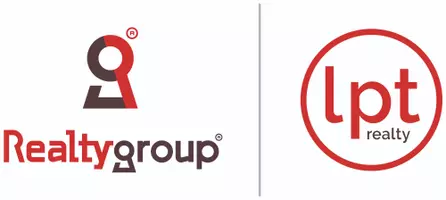Ways to prepare yourself for a successful home purchase


Check Your Credit Score Early – Review your credit report and address any issues to secure better mortgage rates. Keeping your credit cards under 30% in usage is crucial for maintaining a healthy credit score. By monitoring your credit early in the process, you can identify and resolve any discrepancies or negative marks that could impact your ability to get favorable loan terms. This proactive approach will put you in a stronger position when it comes time to apply for a mortgage.
Set a Realistic Budget – Factor in not just the purchase price, but also closing costs, taxes, insurance, and maintenance. It’s important to decide how much you want as a monthly payment, regardless of what you may qualify for. Establishing a realistic budget ensures that you don’t overextend yourself financially and can comfortably manage all associated costs of homeownership. Consider future expenses and potential changes in income to create a sustainable financial plan. Save for a Down Payment – The more you can put down, the better your loan terms may be. While aiming for at least 20% is ideal, there are options available for lower down payments if necessary. In some cases, you can get into a home for as little as $1000 down if you qualify. Saving diligently for your down payment not only reduces the amount you need to borrow but also demonstrates financial responsibility to lenders.
Get Pre-Approved for a Mortgage – This shows sellers you’re serious and helps you know exactly what you can afford. If you don’t have a trusted loan officer, ask your real estate agent for recommendations. They know which loan officers are most successful and can connect you with professionals who will provide reliable pre-approval services. Having pre-approval gives you an edge in competitive markets by showing sellers that you're financially prepared to make an offer.
Research Neighborhoods – Visit at different times of day to get a true sense of what living there would be like. Check local amenities such as parks, shops, and restaurants, as well as commute times to work or school. School ratings are particularly important if you have children or plan to in the future. Thoroughly researching neighborhoods ensures that you choose a location that aligns with your lifestyle needs and preferences.
Make a list of must-haves vs. nice-to-haves – When searching for a new home, it's crucial to distinguish between the features you absolutely need and those that would simply be nice to have. This will help you stay focused on your priorities and make the decision-making process more manageable. For example, if having a certain number of bedrooms is essential for your family, put that on your must-have list. On the other hand, if you’d like a home with a swimming pool but can live without it, place it on the nice-to-have list. By prioritizing what's essential, you'll be able to make more informed choices and remain flexible on less critical aspects.
Understand the full cost of ownership – Purchasing a home involves more than just the initial price tag; it's important to consider all ongoing expenses that come with homeownership. These can include utilities, homeowners association (HOA) fees, property taxes, and maintenance costs. Being aware of these additional expenses will help you budget more accurately and avoid any financial surprises down the road. Remember to factor in potential repairs and upgrades as well, as these costs can add up over time.
Be ready to move quickly – In competitive real estate markets, being prepared and able to act swiftly can give you an edge over other buyers. This means having your financing in order, being pre-approved for a mortgage, and knowing exactly what you're looking for in a home. When you find a property that meets your criteria, being decisive and making an offer promptly can make all the difference in securing your dream home.
Don’t skip the home inspection – A professional home inspection is an essential step in the home-buying process. It provides an objective assessment of the property's condition and can uncover potential issues that may not be immediately apparent. Skipping this step could lead to costly repairs down the line or even safety hazards. Always ensure that a thorough inspection is conducted before closing on a property to protect your investment.
Stay patient and positive – Finding the perfect home can sometimes be a lengthy process, but it's important to remain patient and keep a positive outlook. The right home is out there waiting for you, and persistence will pay off in the end. Keep searching diligently, trust in your process, and don't get discouraged by setbacks or competition from other buyers. With time and effort, you'll find a home that meets your needs and makes all your hard work worthwhile.
Recent Posts

Should I wait until spring to sell?

Renting vs. Buying: The Ultimate Guide

Ways to prepare yourself for a successful home purchase

Guide for first time homebuyers

How does the feds interest rate hike effect the mortgage rates?

10 things to make your home ready for sale

5 things that first time homebuyers need to know

"Molly's job is to find and attract mastery-based agents to the office, protect the culture, and make sure everyone is happy! "
GET MORE INFORMATION
